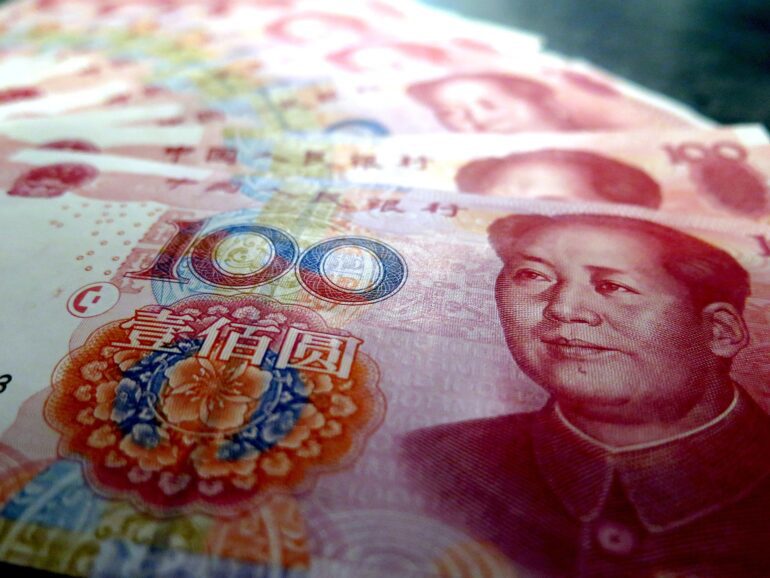TL;DR:
- A scammer in China used AI to deceive a businessman and steal millions of yuan.
- The scammer impersonated the victim’s close friend by changing their face and voice using AI technology.
- The victim transferred 4.3 million yuan after the scammer claimed the money was needed for a public tender.
- The victim realized the fraud after contacting the real friend and alerted the police.
- 3.4 million yuan was recovered, but efforts are ongoing to retrieve the remaining funds.
- The incident highlights the potential risks of AI technology, especially since the launch of OpenAI’s ChatGPT.
- China aims to become an AI leader, but there are concerns about the misuse of AI technology.
- ChatGPT, although unavailable in China, is accessed by Chinese users via VPNs for various purposes.
- The misuse of ChatGPT was demonstrated by a case where someone created a fake news article about a bus crash.
- China has implemented laws to regulate deepfakes and proposed laws for security assessments of AI products.
Main AI News:
A case of fraudulent activity involving artificial intelligence has recently emerged in China, where a scammer utilized advanced AI technology to deceive a businessman and illicitly acquire millions of yuan. The victim, identified as Guo, received what appeared to be a video call from a trusted friend, both in terms of visual appearance and voice. However, unbeknownst to Guo, the caller was employing intelligent AI software capable of altering their facial features and voice, as revealed in a report published by a government-affiliated media portal in Fuzhou.
This scammer skillfully impersonated Guo’s close acquaintance, operating under the guise of friendship while orchestrating a fraudulent scheme. The con artist managed to convince Guo that another mutual friend urgently required a substantial sum of money from the company’s bank account to fulfill a guarantee payment for a public tender. To proceed with the deception, the fraudster requested Guo’s personal bank account details and promptly informed him that an equivalent amount had been transferred to his account, providing a fabricated payment record as proof.
Unfortunately, without verifying the authenticity of the transaction, Guo unknowingly transferred two payments totaling 4.3 million yuan from his company’s account. In retrospect, Guo admitted that he had been lured into complacency due to the apparent verification of the caller’s face and voice during the video call. It was only after Guo reached out to the real friend, whose identity had been stolen, that he realized his grave error.
Promptly alerting the authorities, Guo cooperated with the police, who promptly informed a bank located in another city to halt the transfers. As a result, Guo successfully managed to retrieve 3.4 million yuan of the misappropriated funds. However, efforts to reclaim the remaining balance are ongoing, with no mention of the culprits responsible for this elaborate scheme.
The incident underscores the potential dangers associated with groundbreaking AI technologies, a topic that has attracted significant attention in recent times. Notably, US-based company OpenAI unveiled ChatGPT in November, an advanced chatbot designed to emulate human speech. Although ChatGPT is not accessible within China, numerous Chinese users have found ways to utilize virtual private networks (VPNs) to gain access, employing them for various purposes such as essay writing and exam preparation.
However, alongside legitimate applications, there have been instances of ChatGPT being exploited for malicious intentions. Just this month, authorities in Gansu province reported taking “coercive measures” against an individual who leveraged ChatGPT to fabricate a false news article about a fatal bus crash, disseminating it widely across social media platforms. Recognizing the potential harm stemming from deepfakes and manipulated content, China introduced a law earlier this year, effective since January, which prohibits the use of such technology to create, publish, or transmit false information.
Furthermore, to ensure the responsible development and deployment of AI products, Beijing’s internet regulatory body proposed a draft law in the previous month. According to the draft, all new AI products would undergo a comprehensive “security assessment” prior to their release to the public, further exemplifying China’s commitment to mitigating the risks associated with AI technologies.
The unfortunate case of Guo serves as a stark reminder that as AI advances and permeates various aspects of society, it is crucial to exercise caution and implement adequate safeguards against potential abuses. Establishing robust regulations, raising awareness, and encouraging responsible usage of AI will be instrumental in safeguarding individuals and businesses from falling victim to such sophisticated scams in the future.
Conlcusion:
The case of a scammer utilizing AI technology to defraud a businessman in China highlights the evolving risks associated with artificial intelligence in the market. This incident underscores the need for businesses to remain vigilant and implement robust security measures to safeguard against sophisticated scams and fraudulent activities. As AI continues to advance and permeate various industries, it is imperative for market participants to prioritize the responsible development, deployment, and usage of AI technologies.
Additionally, the regulatory landscape surrounding AI is likely to evolve, necessitating businesses to stay informed and compliant with emerging laws and regulations pertaining to the ethical and secure implementation of AI. By proactively addressing the potential pitfalls and risks associated with AI, businesses can foster trust among consumers and stakeholders, while simultaneously harnessing the transformative power of AI for innovation and growth in the market.

